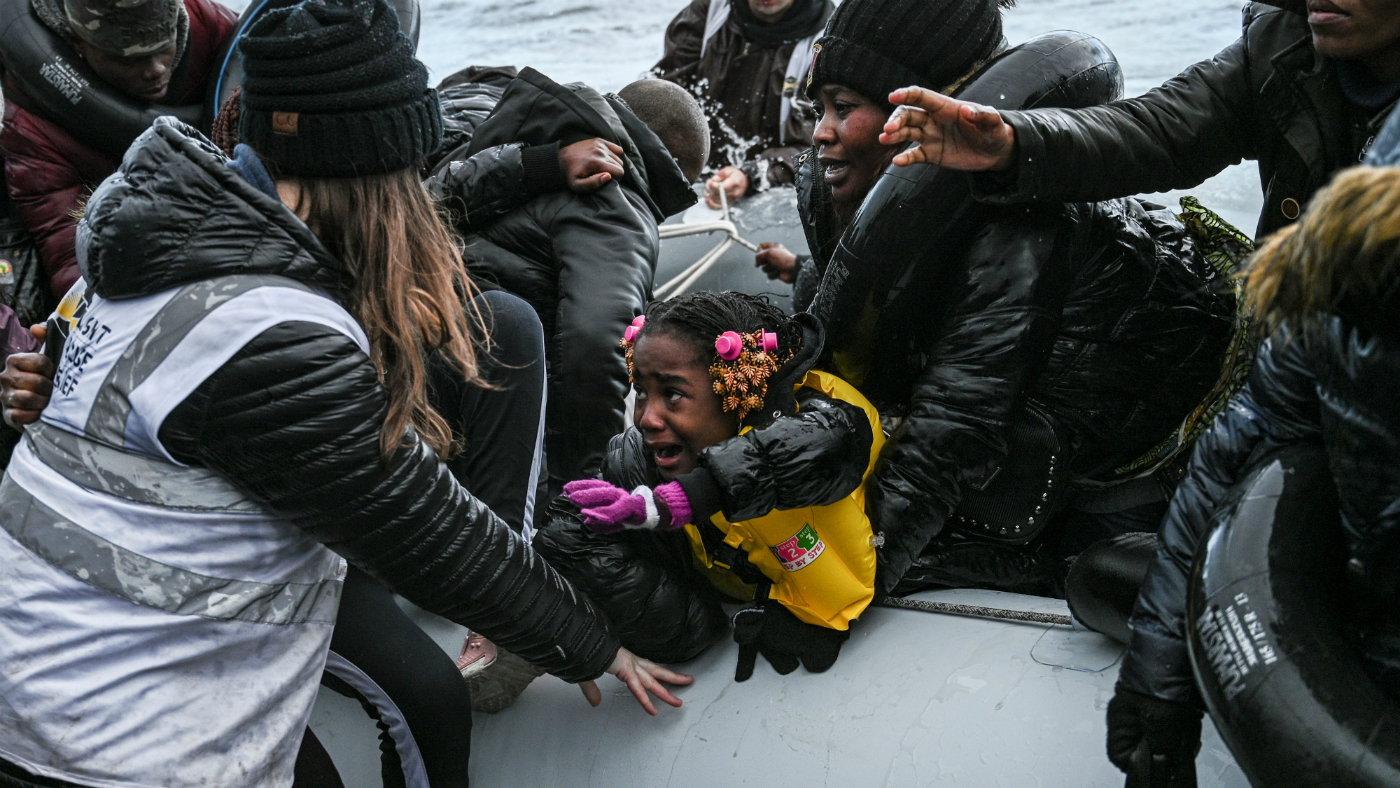Four things we know about the European Union’s new migrant plan
Member states are split over new pact aimed at ending migration disputes

A free daily email with the biggest news stories of the day – and the best features from TheWeek.com
You are now subscribed
Your newsletter sign-up was successful
The European Union has outlined a new migration scheme aimed at ending disputes between member states over the distribution of people landing on European shores.
President of the European Commission Ursula von der Leyen yesterday unveiled the plan to overhaul the bloc’s asylum procedures, saying it would “unify European capitals behind a common migration policy” and calling it a “European solution to restore citizens’ confidence”.
Here are four key takeaways from the new migration scheme.
The Week
Escape your echo chamber. Get the facts behind the news, plus analysis from multiple perspectives.

Sign up for The Week's Free Newsletters
From our morning news briefing to a weekly Good News Newsletter, get the best of The Week delivered directly to your inbox.
From our morning news briefing to a weekly Good News Newsletter, get the best of The Week delivered directly to your inbox.
Shared responsibility for ‘Fortress Europe’
Since 2015, Greece and Italy have had to “manage the waves of people arriving on their shores”, while other countries further from the frontline have refused to take migrants at certain points, Politico says. The new rules share the spread of migrants by hosting asylum seekers or sponsoring returns of failed applicants.
The law also “aims to strengthen control of Europe’s external borders, with new plans to screen all migrants and fast track those unlikely to get asylum”, Voice of America adds.
No opting out
A free daily email with the biggest news stories of the day – and the best features from TheWeek.com
Unveiling the new plan, Von Der Leyen said “it is not a question of whether member states should support with solidarity and contributions but how they should support”.
However, member states such as Poland and Hungary have “resolutely resisted plans for mandatory sharing in the past” and thus it is “unlikely that money or EU plans for quicker processing of asylum claims will change their views”, the BBC reports.
Politico also notes that parts of the plan will be tailored, with “each member country’s needs assessed and a mixture of help in relocating some asylum seekers within the EU,” it says.
Rising from the ashes
The backdrop to the negotiation of the commission’s new scheme was the recent fire at Moria, Europe’s largest migrant camp on the Greek island of Lesbos.
Marie De Somer, migration head of the European Policy Centre, described the fire as “horrible”, adding that it showed to the wider public the “urgency and importance of coming to a European solution” to the migrant crisis.
It has split the room
Despite EU Home Affairs Commissioner Ylva Johansson’s prediction that “no-one will be satisfied” with the plan, German officials have called it a “good basis for discussion” between member states, while Greece praised the pact for facilitating stronger border controls, The Guardian reports.
But not everyone is convinced, with a statement from the Hungarian Parliament saying its stance has been “clear and unchanged”. The country added the EU “should form alliances with countries of origin, so that they are able to provide proper living standards and ensure that their people do not have to leave their homelands”.
-
 How to Get to Heaven from Belfast: a ‘highly entertaining ride’
How to Get to Heaven from Belfast: a ‘highly entertaining ride’The Week Recommends Mystery-comedy from the creator of Derry Girls should be ‘your new binge-watch’
-
 The 8 best TV shows of the 1960s
The 8 best TV shows of the 1960sThe standout shows of this decade take viewers from outer space to the Wild West
-
 Microdramas are booming
Microdramas are boomingUnder the radar Scroll to watch a whole movie
-
 Rubio boosts Orbán ahead of Hungary election
Rubio boosts Orbán ahead of Hungary electionSpeed Read Far-right nationalist Prime Minister Viktor Orbán is facing a tough re-election fight after many years in power
-
 Switzerland could vote to cap its population
Switzerland could vote to cap its populationUnder the Radar Swiss People’s Party proposes referendum on radical anti-immigration measure to limit residents to 10 million
-
 Epstein files topple law CEO, roil UK government
Epstein files topple law CEO, roil UK governmentSpeed Read Peter Mandelson, Britain’s former ambassador to the US, is caught up in the scandal
-
 Iran and US prepare to meet after skirmishes
Iran and US prepare to meet after skirmishesSpeed Read The incident comes amid heightened tensions in the Middle East
-
 Grok in the crosshairs as EU launches deepfake porn probe
Grok in the crosshairs as EU launches deepfake porn probeIN THE SPOTLIGHT The European Union has officially begun investigating Elon Musk’s proprietary AI, as regulators zero in on Grok’s porn problem and its impact continent-wide
-
 Israel retrieves final hostage’s body from Gaza
Israel retrieves final hostage’s body from GazaSpeed Read The 24-year-old police officer was killed during the initial Hamas attack
-
 China’s Xi targets top general in growing purge
China’s Xi targets top general in growing purgeSpeed Read Zhang Youxia is being investigated over ‘grave violations’ of the law
-
 Panama and Canada are negotiating over a crucial copper mine
Panama and Canada are negotiating over a crucial copper mineIn the Spotlight Panama is set to make a final decision on the mine this summer